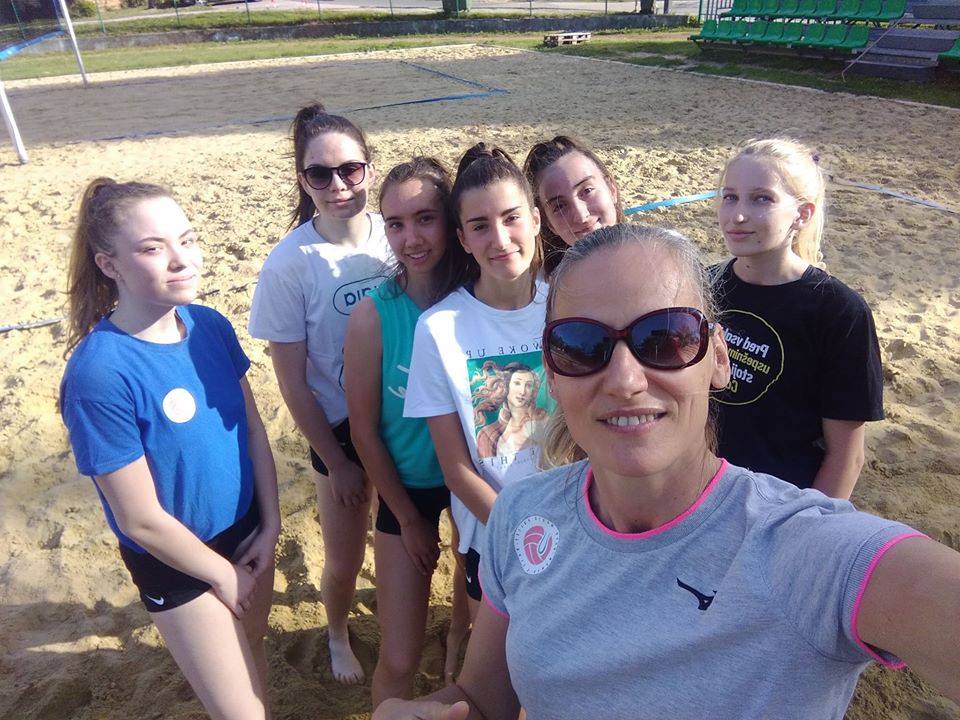Focus Group
Project “YOUth Ambassadors of Non-Formal Learning”
Country: Slovenia
Facilitator: Jana Vernig
Organisation: Društvo za razvijanje prostovoljnega dela Novo mesto
Date and Location: 27.05.2020, on the beach volleyball courts
Participants: 10, aged 15-30
List of questions for Focus Group
- Do you think for NFE is important age, gender, nationality?
No they are not important but they do affect.
Age, because when you’re younger you learn housework at home (informal education), such as cleaning, cooking with mom, driving a car with your father.
Citizenship because everyone has their own culture.
Gender because they are usually boys with fathers and girls with mothers.
Non-formal education should be provided from the age of 13 or depending on the society.
In principle, they are aimed at young people and we think, to adults much less, but citizenship and gender should not be the condition for someone to apply to NFE.
- What does NFE mean to you? Can you define?
Non-formal non-school education. In order to educate knowledge practically, in a concrete situation, useful knowledge, you come up with new knowledge that you cannot acquire in schools. It is important because we learn a lot of new things.
- Have you ever been a participant in an NFE program? If yes – in which one?
Yes. For example: ECO- GREEN ISTANBUL- ERASMUS+; Comenius at school; Youth Exchange in Portugal; Providing language holidays in Austrian Carinthia; Classes for a youth worker at DRPDNM.
- Do you know something about Youth Law/Strategy/Action Plan, as well as other documents related to youth?
No.
- Have you ever participated in the youth decision-making process? If yes, in which one?
No.
- Do you think that more support from the Government is needed to improve the status of young people and in the NFE sphere? If yes, what are the benefits of this, and what are the disadvantages?
Yes. More projects would be possible, we would meet more new friends, we would travel more to see new countries.
It would be necessary for young people to know about this at all. The problem is because they don’t know where to turn if they want to visit the exchange.
Yes, because young people need to participate more in such programs to expand their knowledge. The government should devote more money to this as it is very important for the whole society.
- Does NFE activities help you for your personal development. If yes, how? If not, why?
You meet new friends who help you communicate more easily.
You get to know new cultures, you gain new experiences, friends, you learn a new language, you learn English.
You face your fears, you go outside the comfort zone and you get to know each other.
Yes. In the lectures we talk about very important topics (public speaking, approach to the LGBT community…) and I think this is very important, because there is some general knowledge.
- For you, why is it important to be involved in activities through non-formal education?
You can learn a lot in a fun way without having to sit on a bench and listen. You play and learn new games that you can then use elsewhere.
You learn unusual things that are useful.
You acquire knowledge in a concrete way, first hand, you know how to use it, every knowledge you acquire builds you, perfects (no one can take away your knowledge).
So that I learn a lot of new things, I travel more and I am more aware of general topics in the world.
Facilitator: My opinion is that the interest in non-formal education is high, but young people do not know where to turn, or they are not confident enough to write the first mail themselves.







